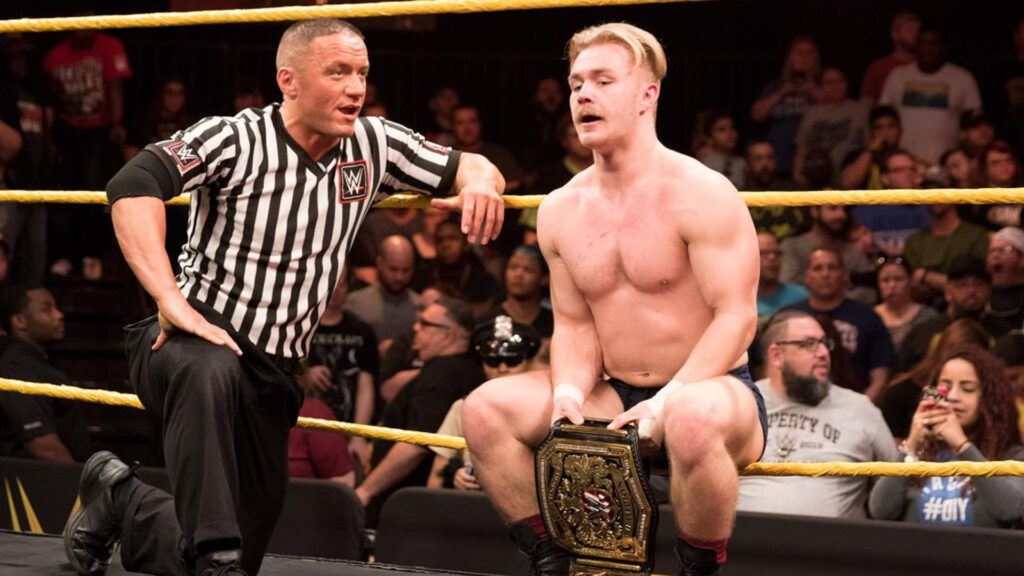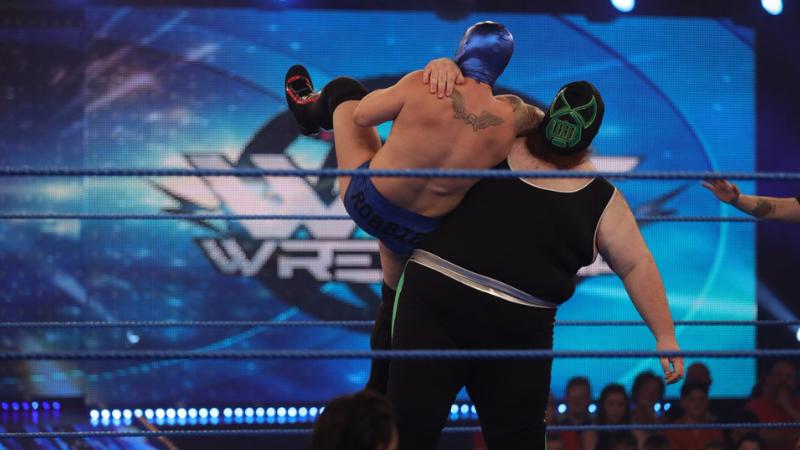Wrestling was taken off television in the UK in 1988, and stayed buried in the darkness following the cancellation of World of Sport wrestling.
American companies like WWE, WCW and TNA quickly became the dominant force in pro wrestling in Britain, but they never reached the popularity of the golden age of wrestling.
Stars like Big Daddy, Giant Haystacks and Kendo Nagasaki became household names for their weekly performances every Saturday afternoon at 4pm, as tens of millions of fans tuned into the TV sets for their fix of wrestling.

However, Greg Dyke was the man that pulled the plug on the show in the 1980s, ending decades of the wrestling on weekends and dealing the final blow to the business in the UK.
The WWE dominated the airwaves until a 2016 pilot on New Year’s Eve saw Grado starring as the face of the new British wrestling revival, as World of Sport wrestling made its long-awaited return to ITV on Saturdays.
The show was quietly cancelled after just one season, following dismal ratings and a huge drop-off in interest after the first few episodes. However, ITV are reportedly considering a return to the airwaves for the iconic show, with new plans to get the wrestling back on our screens in 2024.
There are a number of things they need to focus on in order to make the new World of Sport wrestling a success, and avoid the pitfalls previously made in an attempt to make wrestling a weekly staple in British homes once again.
ITV should focus more on the wrestler, rather than the production

It is fair to say that probably the biggest issue with the World of Sport wrestling reboot was the “ITV-ification” of the product that did not reflect the wider wrestling world.
The BritWres scene at that point was more akin to a punk rock show than a slick “Hole in the Wall” type show, which is something ITV completely ignored when planning the show.
While they had stars like Will Ospreay and Grado to attract the fans, the actual show was hard to watch. Offensively bright colours, overly slick production and some incredibly bland and lifeless direction that was one step off having Chris Kamara presenting it.
Showcase the top wrestlers, but don’t hamper the indie scene

This is actually one criticism that wasn’t present in the 2018 reboot, but is something that bosses will need to look out for in the next WOS show.
When WWE hoovered up all the talent for their failed NXT UK project, it almost killed the indie scene in Great Britain.
All the top draws were signing up to exclusive deals, with companies like Progress and Rev Pro losing the likes of Tyler Bate and Pete Dunne from their rosters.
This decimated the British wrestling scene. With the top stars being snapped up faster than they could be pushed, the promotions suffered from a dearth of main event stars.
Interest and attendance soon dropped to dismal levels, and multiple companies went bust (although there were other reasons for that to consider too).
The goal should not be to compete with the rest of the independent companies. ITV’s offering should compliment the companies already running, showcasing their top stars to entice fans to see their local promotion whenever they come to town.
Don’t try to compete with the WWE

There may be an obsession to try and replace WWE as the biggest name in wrestling in the United Kingdom with this reboot.
Don’t bother!
The influence of the Triple H-run company is so far-reaching and intertwined with the history of professional wrestling itself that it will be impossible to replace them in the cultural zeitgeist.
World of Sport is not going to be a replacement for the WWE. The American giants are huge with children and adults in the UK, although their home being on BT Sport limits the scope of their potential fanbase.
ITV have the benefit of being the third-biggest channel in the UK (after BBC1 and BBC2), which gives them the potential viewership of nearly 70 million people in the country.
Of course, they will come nowhere near that, but we all remember the times when 16 million people tuned in to watch Big Daddy battling Giant Haystacks on Saturday afternoons.
If they can gain even a fraction of the viewers that they did in the peak of British Wrestling, World of Sport could carve out a niche as a weekly wrestling show for families and wrestling fans alike to enjoy on a Saturday night (not at 1am on a Monday morning, like WWE).
A World of Sport wrestling revival in 2024 has all the potential to make a huge mark on British television, but ITV must correct a lot of mistakes of the past in order to make the show a success in the modern era.
